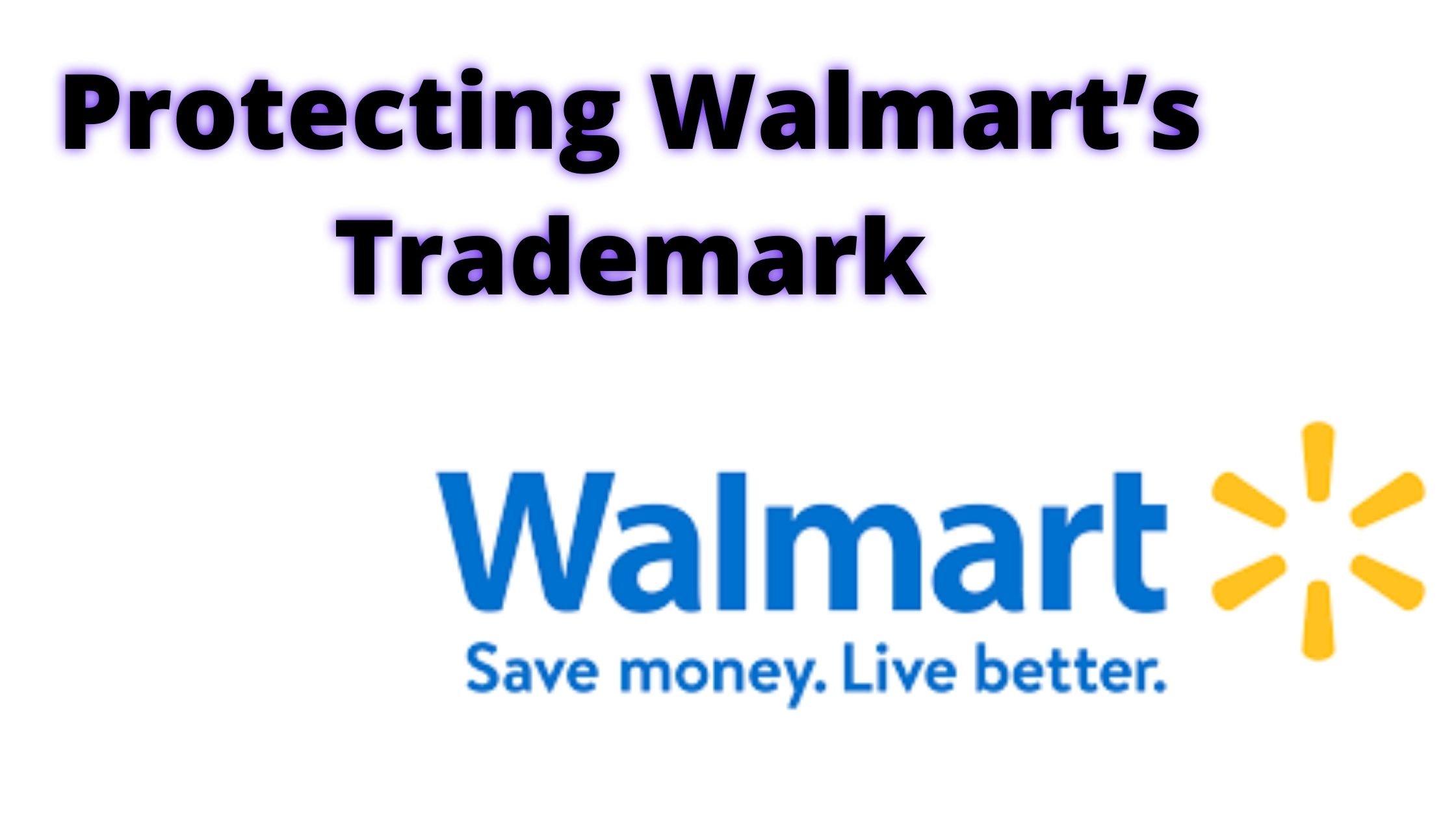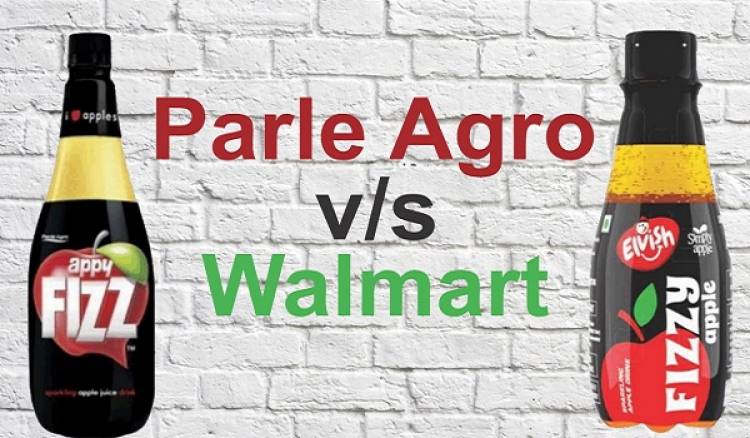Protecting Walmart’s Trademark
The Indian business headquartered in Delhi used Walmart as their Indian market trademark. Aggrieved by this, Wal-Mart filed a petition for an injunction before the Delhi High Court to bar Indian firms from continuing to use Wal-Mart as their trademark under the name of 'Wal-Mart Stores Pvt. Ltd.'. Ltd. The bench headed by Justice Vipin Sanghi of the Delhi High Court held that they the Indian company) will not use Wal-Mart either as a trademark or trade name." They applied for a change of name from the Registrar of Companies.

History of Walmart Protection Battle
A few years back, A Delhi-based Indian corporation has been ordered by the Delhi High Court to use Walmart as either its trademark or trade name on the ground that it is in violation of the Wal-Mart trademark.
The Indian business headquartered in Delhi used Walmart as their Indian market trademark. Aggrieved by this, Wal-Mart filed a petition for an injunction before the Delhi High Court to bar Indian firms from continuing to use Wal-Mart as their trademark under the name of 'Wal-Mart Stores Pvt. Ltd.'. Ltd. The bench headed by Justice Vipin Sanghi of the Delhi High Court held that they the Indian company) will not use Wal-Mart either as a trademark or trade name." They applied for a change of name from the Registrar of Companies.
The Indian business which is headquartered in Delhi used Wal-Mart as their Indian market trademark. Aggrieved by this, Wal-Mart filed a petition for an injunction before the Delhi High Court to bar Indian firms from continuing to use Wal-Mart as their trademark or pursue any business under the name of their Brand name. The bench headed by Justice Vipin Sanghi of the Delhi High Court held that they the Indian company) will not use Wal-Mart either as a trademark or trade name." They applied for a change of name from the Registrar of Companies.
It is interesting to note that the cross-border reputation of Wal-Mart in the international market is the basis of this injunction. In India's retail market, Wal-Mart has yet to establish its trademark goodwill. However, it can be considered that Wal-trademark Mart's prestige has been trans-border travel to India, as well as commercial ads in magazines available in or carried to India. In the case of N., India's courts first accepted the doctrine of trans-boundary reputation. Ors v. Whirlpool Corpn and R. Dongre. And Anr., SCALE 276, 1996(6). Since then on the basis of a trans-boundary reputation, the Indian Courts have issued injunctions for trademark infringement. In the initial battle to protect its trademark in India during its 'gestation period', the injunction order can be viewed as a major victory for Wal-Mart.
Battle of Trademark Protection with Parle Agro Private Limited

-
The bulk of trademark litigation centers around the "deceptive similarity" principle. As the name implies, "deceptive similarity" can be defined as a substantial degree of resemblance between any two products or marks in such a way that the general public of mediocre mindset is likely to be fooled or misled into thinking that the products or marks are related or linked to each other. In India, the courts typically review those conditions in order to draw out elements that constitute misleading similarities. These include the Phonetic and Visual Similarity Theory, the Law of Entirety, i.e. the mark as a whole the degree of probability of misunderstanding, and finally the goodwill attached to the mark being infringed. It is rather a rare phenomenon for a domestic corporation to take a global billionaire company to court claiming infringement of a trademark. Not so long ago, after it violated the famous "Appy Fizz" trademark, aggrieved Parle Agro Private Limited forced Walmart through the courtroom.
-
Parle Agro, the parent of the best-selling consumer brands, was founded 36 years ago, in 1984. In addition to being renowned for its lip-smacking drinks, including the brands Frooti, Appy Fizz, Frio, and Bailley, the Mumbai-headquartered company is also the owner of Parle-G, Melody, Mango Bite, Poppins, Kismi Toffee bar and biscuits such as Monaco and Krackjack. In particular, the firm holds many trademark registrations under its name, including, inter alia, 'APPY FIZZ' bearing number 1668879, 'APPY FIZZ (DEVICE OF APPLE)' bearing number 2106067, each of which is in Class 32.
-
Of course, no matter how enormous the rival infringer is, Parle won't accept a copy of its nearest and dearest brand. In its petition, Parle Agro claimed that Walmart India released an apple-flavored drink called "Fizzy Apple" with a "deceptively similar packaging, thus violating Parle's Appy Fizz. Walmart further alleges that the infringing product "using the same font and color scheme" is "produced, marketed, sold and promoted."
-
In an attempt to persuade Justice BP Collabawalla of the Hon'ble Bombay High Court, Advocate Hiren Kamod argued that the defendants seek to ride on the reputation and goodwill generated by the complainant in its 'Appy Fizz' product and the extensive promotion and advertising of the same made by the complainant and seek to make wrongful gains.
-
On July 9, Justice BP Colabawalla agreed with the plaintiff to grant them temporary relief in the matter, prohibiting the defendants from producing and selling any product resembling the trademark of the plaintiff. The hearing is still continued and the judgment is yet to come.
The reason behind the trademark appeal made by Parle
-
Walmart India is a blend of shopping experiences, serving Indian customers, retailers, manufacturers, and distributors. It provides a mix of modern goods to Indian customers, including e-commerce, logistics, and food drinks, such as the Fizzy Apple line of Walmart India, etc.
-
For 'disappointing' packaging and selling an apple-flavored drink, close to its trademarked Appy Fizz, Parle Agro must take legal action against Walmart India.
-
Advocate Hiren Kamod, representing Parle Agro, told the court that the entire trade dress of the defendant's product is similar to that of its product.
The following are some of these similar terms:
-
Mark of the product thereof
-
Identical type
-
Scheme of Color
-
The product mark
-
Therefore by the argument of Abhishek Malhotra, part of Walmart India's advocate,' Fizzy' was a general descriptive term that no one can claim the monopoly over. In addition, the next hearing will be on August 20, 2020.
Conclusion
As we noted above even large MNCs are still trying to mislead the general public with identical product packaging and taking unfair advantage of it. Registration of a trademark helps to play a defensive role in such cases and to protect brand owners from misuse of such a trademark.
A trademark can be a word, emblem, pattern, color or shape combination, etc. Also, it denotes the individuality of a brand or product and separates it from rivals. You will protect your brand name from misuse and unauthorized use by others via trademark registration.
BY-
Ankita Rathi












